Keynote speech
September 22-24 2017, Nanjing, China
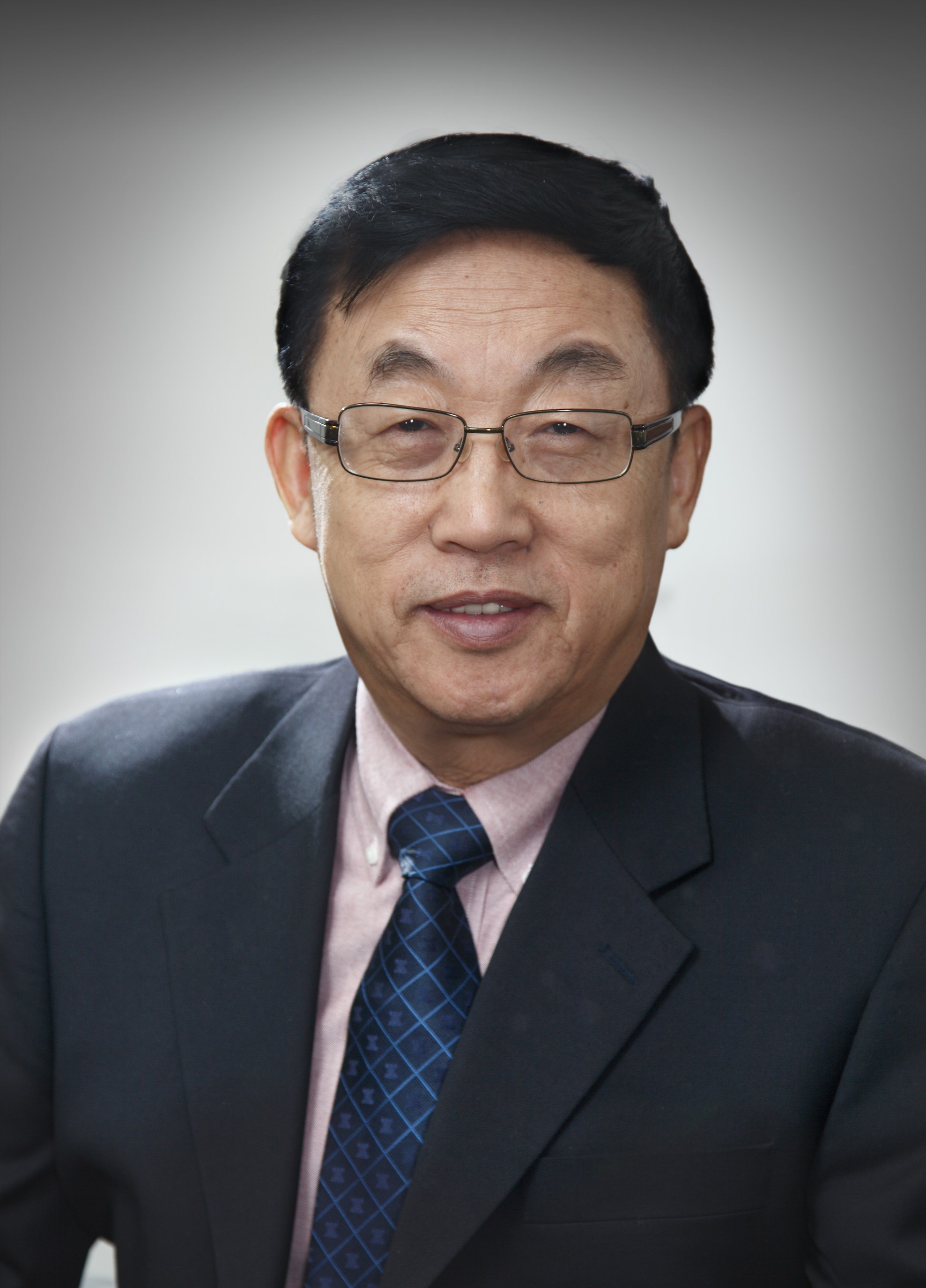
CPS driven optimal control system for energy-intensive equipment
Prof. Tianyou Chai, Northeastern University, China.
Abstract
China has abundance of mineral resources such as magnesite, hematite and bauxite, which constitute a key component of its economy. The relatively low grade, and the widely varying and complex compositions of the raw extracts, however, pose difficult processing challenges including specialized equipment with excessive energy demands. The energy intensive furnaces together with widely uncertain features of the extracts form hybrid complexities of the system, where the existing modeling, optimization and control methods have met only limited success. Currently, the mineral processing plants generally employ manual control and are known to impose greater demands on the energy, while yielding unreasonable waste and poor operational efficiency. The recently developed Cyber-Physical System (CPS) provides a new key for us to address these challenges. The idea is to make the control system of energy intensive equipment into a CPS, which will lead to a CPS driven optimal control system.
This talk presents the syntheses and implementation of a CPS driven optimal control system for energy-intensive equipment under the framework of CPS. The proposed CPS driven optimal control system consists of three main functions: (i) setpoint control; (ii) tracking control; and (iii) self-optimized tuning. The key in realizing the above functions is the integrated optimal operational control methods to implement setpoint control, tracking control and self-optimized tuning together seamlessly. This talk introduces the integrated optimal operational control methods we proposed.
Hardware and software platform of CPS driven optimal control system for energy-intensive equipment is then briefly introduced, which adopts embedded control system, wireless network and industrial cloud. It not only realizes the functions of computer control system using DCS (PLS), optimization computer and computer for abnormal condition identification and self-optimized tuning, but also achieves the functions of mobile and remote monitoring for industrial process.
Then, using fused magnesium furnace as an example, a hybrid simulation system for CPS driven optimal control system for energy-intensive equipment developed by our team is introduced. The results of simulation experiments show the effectiveness of the proposed method that integrates the setpoint control, tracking control and self-optimized tuning in the framework of CPS.
The industrial application of the proposed CPS driven optimal control system is also discussed. It has been successfully applied to the largest magnesia production enterprise in China, resulting in great returns. Finally, future research on the CPS driven optimal control system is outlined.
Biography
Tianyou Chai received the Ph.D. degree in control theory and engineering in 1985 from Northeastern University, Shenyang, China, where he became a Professor in 1988. He is the founder and Director of the Center of Automation, which became a National Engineering and Technology Research Center and a State Key Laboratory. He is a member of Chinese Academy of Engineering, IFAC Fellow and IEEE Fellow, director of Department of Information Science of National Natural Science Foundation of China. His current research interests include modeling, control, optimization and integrated automation of complex industrial processes. He has published 180 peer reviewed international journal papers. His paper titled Hybrid intelligent control for optimal operation of shaft furnace roasting process was selected as one of three best papers for the Control Engineering Practice Paper Prize for 2011-2013. He has developed control technologies with applications to various industrial processes. For his contributions, he has won 4 prestigious awards of National Science and Technology Progress and National Technological Innovation, the 2007 Industry Award for Excellence in Transitional Control Research from IEEE Multiple-conference on Systems and Control.
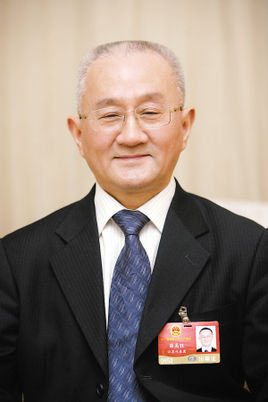
From smart grids to cyber energy society system
Prof. Yusheng Xue, Honorary President of State Grid Electric Power Research Institute, China.
Abstract
Yusheng XUE (State Grid EPRI/NARI, China) and Xinghuo YU (RMIT University, Australia)
Smart Grids (SGs) as cyber-physical systems in power (CPSP) in nature are electric networks that use innovative and intelligent monitoring, control, communication, and self-healing technologies to deliver better connections and operations for generators and distributors, flexible choices for prosumers, and reliability and security of electricity supply. However, in line with the global movement towards a sustainable renewable energy future to address Climate Change, SGs cannot fully reflect the requirements of dominating renewable energy generation, stringent economic and environmental constraints, market competition, social and regulatory requirements. On one hand, electric energy plays a central role in the whole energy supply chain since changing the energy from electric form to non-electric one may not be as effective as using electricity directly. On the other hand, any changes in primary energy and end-use energy significantly affect electric power reliability as well as economy. A more holistic (system-of-system) approach needs to be taken to deal with future energy, and a new concept of CPSSE (cyber-physical-social systems in energy) is proposed. Consideration should be given to coordination of environmental, economic, social factors and human behaviors, a hybrid research framework across various disciplines concerned with different time and space scales. This enables collaborative mining big data with hidden causal relationships in the complex cross social, technological, economical, and environmental dimensions. The driving force induced by interaction between them may be much more powerful than the internal driving force of information systems, energy systems, and human societies themselves.
Biography
Professor Yusheng XUE received MSc degree in Electrical Engineering from EPRI, China in 1981 and PhD degree from the University of Liege, Belgium in 1987. He was elected as an academician of Chinese Academy of Engineering in 1995. He is now the Honorary President of State Grid Electric Power Research Institute (SGEPRI or NARI), China. He holds the positions of Adjunct Professor in many universities in China and a conjoint professor of the University of Newcastle in Australia. He is also an honorary professor of the University of Queensland, Australia. He has been a member of the PSCC Council, and the Editor-in-Chief of Automation of Electric Power System since 1999, and a member of Editorial Board of IET Generation, Transmission & Distribution, and Chairman of Technical Committee of Chinese National Committee of CIGRE since 2005.
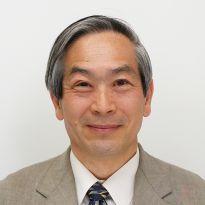
What is medical innovation? From biomedical engineering point of view
Prof. Mitsuo Umezu, Waseda University, Japan.
Abstract
The Japanese Government has a special policy to promote medical innovation for overall happiness of nations. One of the epoch-making actions is related to a revision of "The pharmaceutical affairs act". It was originally established in 1943, and fully revised in fall, 2014, suitable for advanced medical technologies. Then, the name of the act was changed to "The act to ensure a quality, efficacy and safety of medical products and equipment". Another great action was an establishment of the "Japan Agency for Medical Research and Development (AMED)" in spring, 2015. AMED engages in research and development (R&D) in the field of medicine, establishing and maintaining an environment for this R&D, providing a mixture budgets, funding from the Ministry of Education(30%), the Ministry of Health(55%), and the Ministry of Economy(15%).
Biomedical engineering faculty members at Waseda University have conducted several trials to get on a "medical innovation" policy, including a development of human resources: (1) Practical bioengineers, having a valuable experience on true collaboration between Medicine and Engineering towards clinical application, and (2) Medical regulatory science specialists (PhD), having a professional skill to propose future medical policies.
Biography
Prof. Mitsuo UMEZU is a biomedical engineer in the research field of modeling and simulation for cardiovascular system to evaluate advanced medical technologies and treatments. He received two PhDs; Doctor of Engineering from Waseda University and Doctor of Medical Science from Tokyo Women's Medical University. He was appointed as a research associate and laboratory head of a department of Artificial Organ at the National Cardiovascular Center Research Institute, Osaka between 1979 and 1988. Then, he worked as the first project leader of Australian Artificial Heart Program at St.Vincent's Hospital, Sydney, Australia. He has been a professor of the department of Mechanical Engineering, Waseda University since 1992. He is one of the founders of "Center for Advanced Biomedical Sciences, (TWIns)", and also a department head of Joint Graduate School with Tokyo Women's Medical University. His recent research interest includes development and evaluation of artificial organs and medical regulatory science.
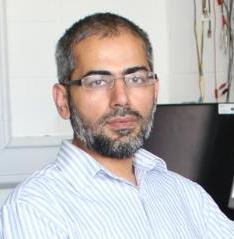
Towards cognitively-inspired Data Science based on context-aware, multi-modal Big Data Analytics: Selected real-world Case Studies
Prof. Amir Hussain, University of Stirling, UK.
Abstract
Cognitive Data Science is a rapidly developing discipline, bringing together neurobiology, cognitive psychology, Big Data and artificial intelligence. Ongoing pioneering work at Stirling University is exploring the development of cognitively-inspired Data Science approaches based on context-aware, multi-modal Big Data Analytics, for solving challenging real world applications. Two case studies are introduced in this talk. Firstly, on-going research into cognitively-inspired multi-modal speech perception has led to the development of a novel context-aware, audio-visual speech processing system. The proposed framework exploits cognitively inspired use of both audio and visual (including lip-tracking) information, with potential applications in next-generation multimodal hearing aids and listening device technology. The second case study focusses on open-domain sentiment analysis of natural language text using sentic computing: a novel multi-disciplinary paradigm, exploiting the semantic, latent and implicit meaning of natural language concepts. Ongoing extensions of this work include a cognitively-inspired emotion recognition system based on contextual multimodal input, including natural language text, audio and facial information, which is shown to significantly outperform state-of-the-art systems. We present a brief summary of these exciting multi-disciplinary research areas, and outline some future research directions and challenges.
Biography
Amir Hussain is full Professor of Computing Science, founding Director of the Cognitive Big Data Informatics (CogBID) Research Laboratory, and Head of the Data Science and Security Research Group at the University of Stirling in Scotland, UK. He obtained his BEng in Electronic and Electrical Engineering (with the highest 1st Class Honours, with distinction) and PhD (in novel neural network architectures and algorithms for real-world applications), both from the University of Strathclyde in Glasgow, UK, in 1992 and 1997 respectively. Professor Hussain's research interests are cross-disciplinary and industry focused, aimed at pioneering next-generation brain-inspired multi-modal Big Data cognitive technology for solving complex real world problems. In 2016, he was ranked, in an independent survey published in Elsevier's leading Information Processing and Management Journal, as one of the world's top two most productive, highly cited researchers in the sentiment analytics field (since 2000). He has (co)authored more than 300 publications (with more than 100 journal papers, and a dozen Books, including the world's first research monographs in the multi-disciplinary areas of: cognitively-inspired audio-visual speech filtering, sentic computing, and cognitive agent based computing). He has led major multi-disciplinary research projects (worth over $3million, including over $0.5m of currently held grants), as Principal Investigator, funded by national and European research councils, local and international charities and industry, and has supervised more than 25 PhDs to-date. He is founding Editor-in-Chief of (Springer Nature's) Cognitive Computation journal and the (BioMed Central (BMC)/Springer Nature) journal: BMC Big Data Analytics. He also serves as Associate Editor of several other leading journals including, the IEEE Transactions on Neural Networks and Learning Systems and the IEEE Computational Intelligence Magazine. He is Vice-Chair of the Emergent Technologies Technical Committee of the IEEE Computa
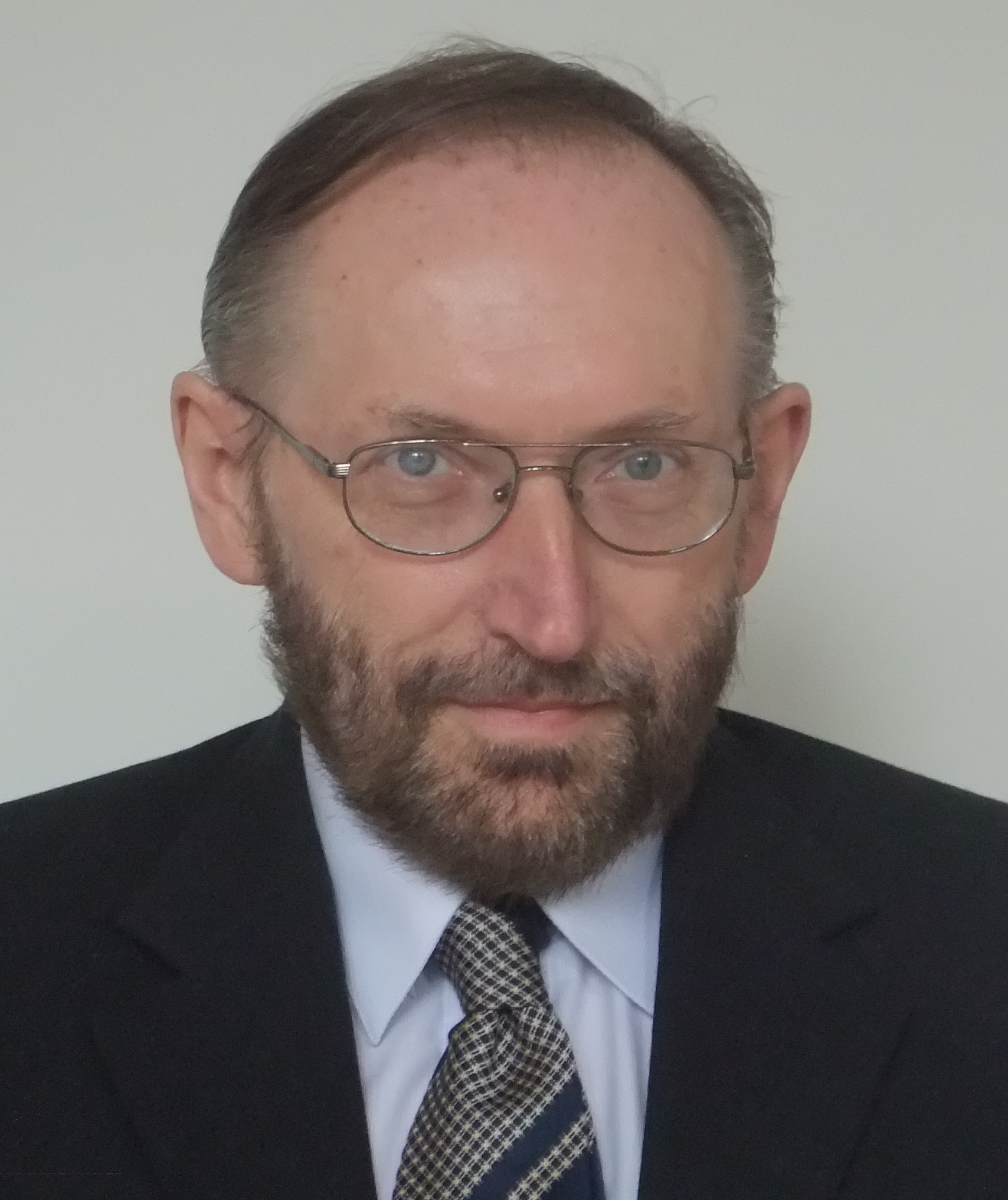
Information Granularity in Data Science and Intelligent Systems: Conceptual and Development Environment
Prof. Witold Pedrycz, The University of Alberta, Canada.
Abstract
Information granules play a pivotal role in acquiring, representing, processing, and communicating knowledge at a suitable level of abstraction especially in the context of modelling and analysis of complex systems. There are challenging objectives of conceptual and algorithmic nature. Designing information granules is paramount importance to all pursuits of Granular Computing.
The talk offers a comprehensive and systematically structured overview of methodologies and algorithms of designing information granules along with a suite of representative applications in data analysis, system modelling, and decision-making. The taxonomy embraces two main categories of data-driven and knowledge-oriented approaches. We introduce and discuss a principle of justifiable granularity, which serves as a key design vehicle facilitating a formation of information granules completed on a basis of available experimental evidence. Recent advances of the principle are discussed including a collaborative version of the principle supporting data analysis carried out in the presence of distributed data, context-based version of the principle incorporating auxiliary sources of knowledge, and its hierarchical version facilitating handling experimental evidence being available at several levels of specificity (abstraction). A collection of design scenarios supporting a formation of hierarchies of information granules of higher type and higher order is presented.
In the realm of applied investigations, we discuss a number of representative constructs including collaborative mode of discovery of relationships through constructing granular bi-directional and multi-directional associative memories and stacked granular auto-encoders being regarded as building modules of deep learning architectures.
Biography
Witold Pedrycz (IEEE Fellow, 1998) is Professor and Canada Research Chair (CRC) in Computational Intelligence in the Department of Electrical and Computer Engineering, University of Alberta, Edmonton, Canada. He is also with the Systems Research Institute of the Polish Academy of Sciences, Warsaw, Poland. In 2009 Dr. Pedrycz was elected a foreign member of the Polish Academy of Sciences. In 2012 he was elected a Fellow of the Royal Society of Canada. Witold Pedrycz has been a member of numerous program committees of IEEE conferences in the area of fuzzy sets and neurocomputing. In 2007 he received a prestigious Norbert Wiener award from the IEEE Systems, Man, and Cybernetics Society. He is a recipient of the IEEE Canada Computer Engineering Medal, a Cajastur Prize for Soft Computing from the European Centre for Soft Computing, a Killam Prize, and a Fuzzy Pioneer Award from the IEEE Computational Intelligence Society.
His main research directions involve Computational Intelligence, fuzzy modeling and Granular Computing, knowledge discovery and data science, fuzzy control, pattern recognition, knowledge-based neural networks, relational computing, and Software Engineering. He has published numerous papers in this area. He is also an author of 16 research monographs and edited volumes covering various aspects of Computational Intelligence, data mining, and Software Engineering.
Dr. Pedrycz is vigorously involved in editorial activities. He is an Editor-in-Chief of Information Sciences, Editor-in-Chief of WIREs Data Mining and Knowledge Discovery (Wiley), and Int. J. of Granular Computing (Springer). He serves on an Advisory Board of IEEE Transactions on Fuzzy Systems and is a member of a number of editorial boards of international journals.

On Discontinuous Observers: From Basic Properties to a Robust Fault Detection and Condition Monitoring Tool
Prof. Sarah Spurgeon, University College London, UK.
Abstract
Sliding mode observers have generated a ground swell of interest in recent years. These observers have unique properties. Their ability to force the error between the measured plant output and the output of the observer to be identically zero produces a set of state estimates that are precisely commensurate with the actual output of the plant. It is also the case that analysis of the applied observer injection signal, the so-called equivalent injection signal, contains useful information about the mismatch between the model used to define the observer and the actual plant. This lecture presents an overview of both linear and non-linear sliding mode observer paradigms. The use of the equivalent injection signal in problems relating to fault detection and condition monitoring is demonstrated. A number of applications specific results are also described.
Biography
Sarah Spurgeon OBE, FREng, FInstMC, FIET, FIMA is Professor of Control Engineering and Head of the Department of Electronic and Electrical Engineering at University College London and President of the Institute of Measurement and Control in the UK. Sarah Spurgeon's research interests are in the area of systems modelling and analysis, robust control and estimation in which areas she has published over 270 refereed research papers. She was awarded the Honeywell International Medal for 'distinguished contribution as a control and measurement technologist to developing the theory of control' in 2010 and an IEEE Millenium Medal in 2000. She is currently a member of the Council of the International Federation of Automatic Control (IFAC) and a member of the General Assembly of the European Control Association. Within the UK she is an independent member of the Defence Scientific Advisory Council (DSAC) which provides independent advice to the Secretary of State for Defence on science, technology, engineering, analysis and mathematics matters and is also a Board Member of EngineeringUK.

Decarbonizing the whole energy chain from top to tail - control challenges
Prof. Kang Li, Queen's University Belfast, UK.
Abstract
No single solution currently exists to achieve the utopian desire of zero fossil fuel consumption in addressing the global challenge of sustainable energy and environment. It is evident that the energy mix will contain a large variation in stochastic, intermittent and distributed sources of renewable energy such as wind and solar power. The increasing prominence of renewable and cleaner energy resources in the pursuit of legally binding UK and European energy targets spurs all stakeholders and sectors on to plan for the unique challenges such promising sources present. This presentation will discuss various control challenges towards the de-carbonization of the whole energy chain from top to tail, including emission reductions from traditional thermal plants, integration of significant renewable power, electrification of transportation, and energy efficiency in building and manufacturing industry. The significant role of intelligent control techniques in transforming the energy system to a future energy network is highlighted and demonstrated.
Biography
Kang Li received Ph.D. degree in Control Theory and Applications from Shanghai Jiaotong University in 1995, and a DSc degree from Queen's University Belfast in 2015.
Between 1995 and 2012, he worked at Shanghai Jiaotong University, Delft University of Technology and Queen's University Belfast as a research fellow. Since 2002, he was a Lecturer, a Senior Lecturer (2007), and a Reader (2009) with the School of Electronics, Electrical Engineering and Computer Science, Queen's University Belfast, Belfast, U.K, and he became a Chair Professor of Intelligent Systems and Control in 2011. His research interests include nonlinear system modelling, identification, and control, and bio-inspired computational intelligence, with applications to the development of advanced control technologies for decarbonizing the whole energy systems, from integration of renewable energies, smart grid, to electric vehicles, and energy reduction in manufacturing.
Registration
Register and submit camera-ready to lsms2017_icsee2017@163.com before 20th June 2017!
Q&A at Chinese or English version.



